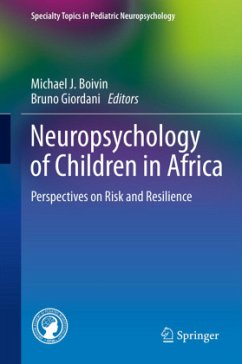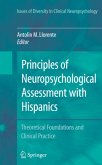?Increasingly, global humanitarian efforts are focusing on improving the lives of children. And among the developing world, the African nations are particularly affected by extreme weather conditions, devastating pandemics, and armed conflict. Neurocognitive science offers significant avenues toward bringing needed aid to the continent while creating a template for helping children worldwide.
The studies in Neuropsychology of Children in Africa clearly illustrate how the brain develops and adjusts in the face of adversity. Contributors span assessment approaches and public health risk factors, and represent established topics and emerging lines of research, including biocultural constructs and genomic technologies. Together, these chapters argue for methodology that is culturally sensitive, scientifically rigorous, consistent, and sustainable. And although the focus is pediatric, the book takes a lifespan approach to prevention and intervention, modeling a universal framework for understanding neurocognitive development. Included in the coverage:
- Assessment of very young children in Africa in the context of HIV.
- Psychosocial aspects of malnutrition among African children.
- Assessment of neuropsychological outcomes in pediatric severe malaria.
- Neurodisability screening using the Ten Questions questionnaire.
- The neuropsychology of sickle cell disease in West African children.
- Computerized Cognitive Rehabilitation Therapy for African children.
As a guide to current findings or a springboard for new studies, Neuropsychology of Children in Africa is a necessary reference for researchers, policymakers, and diverse professionals in global aid organizations, and across the discipline.
The studies in Neuropsychology of Children in Africa clearly illustrate how the brain develops and adjusts in the face of adversity. Contributors span assessment approaches and public health risk factors, and represent established topics and emerging lines of research, including biocultural constructs and genomic technologies. Together, these chapters argue for methodology that is culturally sensitive, scientifically rigorous, consistent, and sustainable. And although the focus is pediatric, the book takes a lifespan approach to prevention and intervention, modeling a universal framework for understanding neurocognitive development. Included in the coverage:
- Assessment of very young children in Africa in the context of HIV.
- Psychosocial aspects of malnutrition among African children.
- Assessment of neuropsychological outcomes in pediatric severe malaria.
- Neurodisability screening using the Ten Questions questionnaire.
- The neuropsychology of sickle cell disease in West African children.
- Computerized Cognitive Rehabilitation Therapy for African children.
As a guide to current findings or a springboard for new studies, Neuropsychology of Children in Africa is a necessary reference for researchers, policymakers, and diverse professionals in global aid organizations, and across the discipline.
"A welcomed introduction to the landscape of pediatric neuropsychology in Africa and significantly expands the range of cultures and conditions included in most academic texts on cross-cultural neuropsychology. ... The text will likely be most attractive to brain-related practitioners and educators who work in the referenced regions as well as scientists who are confronting similar challenges in other resource-limited settings. ... of great interest to trainees and aid in providing a global perspective to the practice of neuropsychology." (Desiree Byrd, Archives and Clinical Neuropsychology, Vol. 30 (5), August, 2015)








